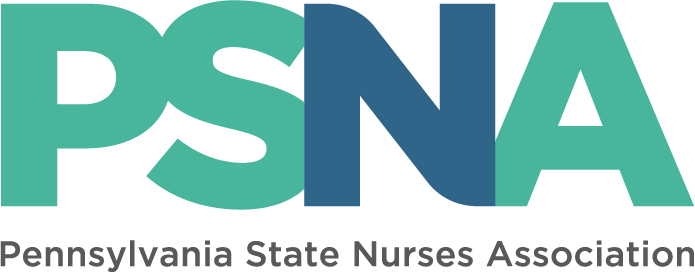It is important for every registered nurse to understand and be able to apply the Code of Ethics for Nursing. Regardless of your practice setting, each day you will make ethical decisions that should be guided by this professional code. Due to the recently updated Code, ANA has declared Year 2015 as “The Year of Ethics.”
PSNA is offering a “Code of Ethics for Nursing” webinar, which will be offered: Part I, September 8 (11 AM to 12 PM) and Part II, October 13 (2 to 3 PM). This two-part webinar series will introduce you to the updated Code and help you to apply each provision to your practice. The webinar series will cover nine provisions. Registration is now open for Part I of our webinar series.
One example, Provision VIII, highlights the nurses role in our communities. Review the provision below and consider how this applies to your practice.
Provision VIII. The nurse collaborates with other health professionals and the public in promoting community, national, and international efforts to meet health needs (ANA, 2001, p. 23). This provision addresses the macro level of responsibility professional nurses have in being aware of and involved in the “broader health concerns such as world hunger, environmental pollution, lack of access to health care, violation of human rights, and inequitable distribution of nursing and health care resources” (ANA, 2001, p. 23). For example, the International Centre for Nursing Ethics (2008) human rights and nursing awards were given to Emmie Chanika (Malawi) and Sister Teresita Hinnegan (Philadelphia). Emmie Chanika is a nurse and human rights lawyer, with particular concern for the rights of women and children, and the sale of body parts in her country. After a long career in nursing and midwifery, Sister Teresita Hinnegan has opened a safe house for abused women and founded an organization for the understanding and awareness of issues that lead to such situations. Thousands of nurses win no awards for their dedication to migrant farm workers, individuals in refugee centers, or children in juvenile detention centers. These nurses educate the public on these vulnerable populations and identify conditions that lead to illness in these populations. They work endlessly to bring public awareness to the point of moral outrage in order to stimulate possible policy and legislative changes. Finally, nurses must recognize cultural sensitivity is necessary in our global village. Too often, ethnocentric views stop nurses from seeing their personal cultural or social groups have no superiority over those of a different race, economic status, or sexual orientation. Nurses have a professional obligation to recognize their prejudices and demonstrate respect for the values and practices of those from different cultures.
Provision 8 reviews the macro level of professional nursing responsibility by centering on the issues of world hunger, pollution, and other violations of justice.
This study module for the ANA Code of Ethics Provision 8 has 3 objectives. The RN will:
- Define the responsibilities of Provision 8 and give examples
- Navigate the ANA website using the link Using the Code of Ethics. Read Lachman, V. (2009) Practical Use of the Nursing Code of Ethics: Part II MEDSURG Nursing Vol 18 (3) 191-194.
- Complete a self-assessment to discover areas in which the registered nurse could become active in the responsibilities of Provision 8.
Provision 8 belongs to a section of the ANA Code of Ethics that lie outside direct patient care responsibilities.
Provision 8 says “The nurse collaborates with other health professionals and the public in promoting community, national, and international efforts to meet health needs (ANA, 2001, p. 23). This provision addresses the macro level of responsibility professional nurses have in being aware of and involved in the “broader health concerns such as world hunger, environmental pollution, lack of access to health care, violation of human rights, and inequitable distribution of nursing and health care resources” (ANA, 2001, p. 23).
In talking recently with registered nurses in the local area several creative commitments to this provision came to light. A labor and delivery nurse chose to become the captain for the local March of Dimes fundraising marathon to assist research for prevention and treatment of prematurity. She is responsible to organize all the walkers who will be sponsored with pledges. A recent master of science nursing graduate went with local college nursing students to take part in a global studies event providing nursing care to villagers in a rural section of Belize over spring break in March 2015. Another nurse connected with the mission of her church and has gone to Haiti for 4 consecutive years to provide ongoing health care in a primary setting.
Are you getting inspired to find your own talents, interests, and connections?
The idea of social justice has become so important that ACEN (Accreditation Commission of Education in Nursing) has now mandated that an essential skill for nurses to learn in their education programs is the concept of social justice.
Here are some questions for you to ask yourself as you choose an initiative.
- Do patients on your nursing unit belong to support groups or other national agencies that have local chapters?
- Does your church support homeless, soup kitchens, or food banks?
- Is there a college near you where you could go on a global studies trip to help others in the world?
- If your work would release you I am certain that the American Red Cross could use you to go to Nepal to help the current earthquake victims.
- Do you have out dated nursing textbooks or resources that could be donated to developing countries?
Sign up today for Session I on September 8. 1.0 CNE awarded. FREE to PSNA members / $25 non-members.


